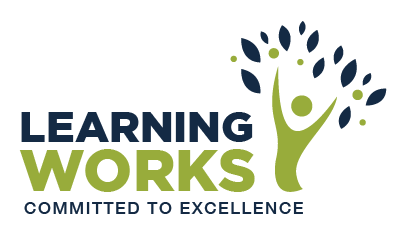Course Description
Nutrition plays a crucial role in the growth and development of infants and children. A balanced diet helps a child maintain a healthy weight, strengthen the immune system, and aids in the development of the nervous and skeletal system.
Parents, carers, healthcare professionals and other practitioners who work with children need to be empowered with knowledge in order to be able to provide children with the right nutrients according to each child’s nutritional needs. This course aims at providing students with such knowledge from pre-conception to the early years and beyond. It also aims at tackling feeding difficulties such as picky eating, disordered eating, and food neophobia.
A child can also have specific feeding requirements, and this course will tackle topics such as food hypersensitivity, inborn errors of metabolism, diabetes, familial hypercholesteremia and weight management.
Education and role modelling play a key role in children’s food choices. This course will provide parents, carers and other practitioners working with children with practical approaches that can directly or indirectly provide children with the right nutrition messages in the house, the school, and hospital/clinic environment.
Learning Outcomes
By the end of the course the learner will have been exposed to the following:
- Identify main features of a healthy balanced diet in an individual.
- Understand the role of nutrition in the overall health and wellbeing of children
- Knowledge about reference values for food energy and nutrients
- Understand nutritional requirements and feeding challenges at the different paediatric stages
- Identify the right strategies to deal with each paediatric nutrition/feeding challenge.
- Understand how to ensure that children following alternative diets do not experience deficiencies of macro- or micro-nutrients.
- Understand how to apply the paediatric care required when dealing with nutrition/feeding challenges.
- Understand how nutrition education can take place within the family, schools, and other settings.
- Apply knowledge about macro- and micro- nutrients, the healthy eating plate and energy requirements for meal planning and/or preparation
- Be able to prepare meals and snacks in line with dietary guidelines which are appealing for children
- Identify feeding/nutritional challenges in children
- Ensure that children om alternative diets do experience macro or micro nutrients
Target Candidates
The course is aimed at students who are interested in paediatric nutrition; parents or guardians; those who work with children such as in a nursery or school; possess a qualification in healthcare, nutrition or similar; or who are further interested in understanding the impact of nutrition in children.
| Course Code | Duration | Credit Value | Next Intake | FT/PT |
|---|---|---|---|---|
| LW/HSC/034 | 10 weeks | 8 ECTS | October 2025 | PT |
| Contact Hours | Placement Hours | Self Study Hours | Assessment Hours | Total Learning Hours |
|---|---|---|---|---|
| 40 | 0 | 120 | 40 | 200 |
Mode of Training
Online lectures
Assessment
In-class discussions, quizzes, presentations and written assignments.
Awarding Body
Learning Works
Lecturers
Course Structure
Module 1: Fundamentals of paediatric Nutrition (2 ECTS)
In this module, students will be able to understand the role that nutrition plays in the overall health and wellbeing of an individual. This module is aimed at providing the basics of nutrition even to those students with no background in this field.
Knowledge about the macro- and micro- nutrients required for a balanced diet, together with awareness on how to prepare healthy meals based on the healthy eating plate model will also be provided. The role of hydration, especially in children is also highlighted.
Dietary reference values for food energy and nutrients are covered. This is followed by awareness on how to adjust nutrition intake depending on the individual’s needs whilst ensuring accessibility and enjoyment of food.
In addition, this module makes reference to physical activity and sports to complement a healthy balanced diet.
Module 2: Nutrition through the different paediatric stages (2 ECTS)
This module provides knowledge on the role of nutrition from preconception, throughout pregnancy, in the early years, and beyond. This is followed by nutrition and feeding challenges that each of these stages can provide, and the approaches to be taken to tackle each difficulty.
This unit also provides students with the knowledge on how anthropometric measures are taken in the paediatric population. The students are also provided with the protocol to be followed when dealing with weight management in children.
During the course students will also have the opportunity to observe the approaches to be applied during infant feeding, weaning, and the early years, through demonstrative educational videos.
Module 3: Overcoming nutrition and feeding challenges in children (2 ECTS)
This module will tackle challenges faced during the feeding in the early years such as picky eating, food aversions and neophobias. It will provide students with ways how to identify the issue, tackle feeding difficulties, and ask for professional assistance when required.
In this unit, paediatric weight management will be tackled, and it will be highlighted how this topic needs to be tackled with great care especially in children. Other clinical nutrition topics such as food hypersensitivity, inborn errors of metabolism, disordered eating and eating disorders, diabetes, and familial hypercholesteremia will also be tackled.
In this module cultural differences in feeding together with different diets such as vegetarian and vegan diets will also be discussed. Here students will be provided with the knowledge required about alternative diets which are on the increase within a multicultural community.
Module 4: Nutrition Education for Children and Guardians (2 ECTS)
This module explains how nutrition education should start from the early years from the family environment, in the childcare centre or school, and beyond. It also discusses the challenges faced during this nutrition education process including advertising, high sedentary behaviour and indirect mixed messages through eg. text and reading books or children’s programmes. In this unit it will also be discussed how role modelling plays a very important role in nutrition education.
In addition in this unit students will be provided with various ideas how nutrition education can be included in everyday life activities such as home cooking and shopping, through games, and through various subjects across the curriculum. It will also explain how children can be raised capable of carrying out nutrition judgment through nutrition information reading, food labelling and analysing nutrition statements.
Entry Requirements
Learners need to satisfy the following criteria:
- Ages 18 +
- Hold a MQF Level 3 qualification or equivalent
- Be able to communicate in the English Language
Digital competence is not a prerequisite for applying for this course.
However, since this programme may be delivered online, training on the use of Zoom and Learning Works VLE will be included in the induction session which precedes lectures.

